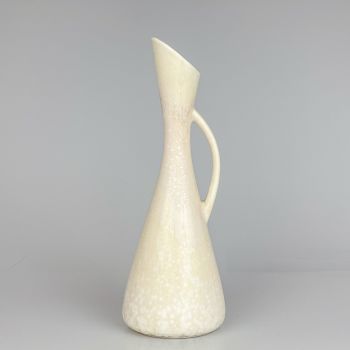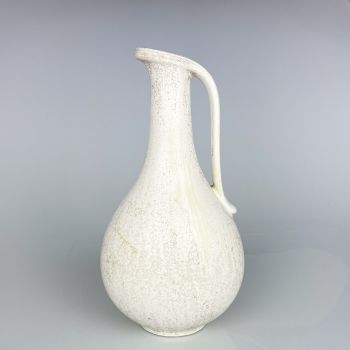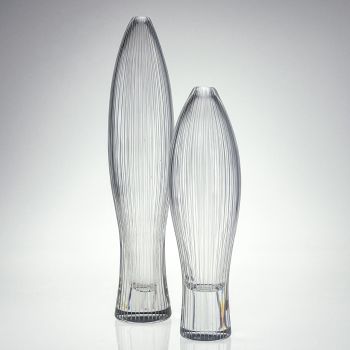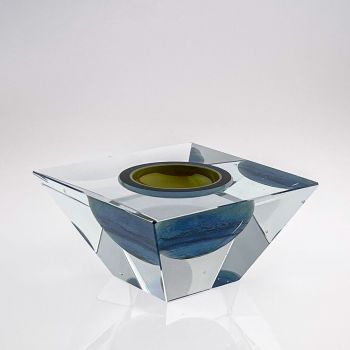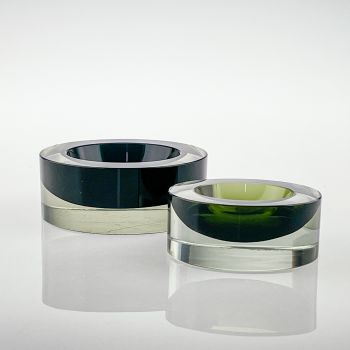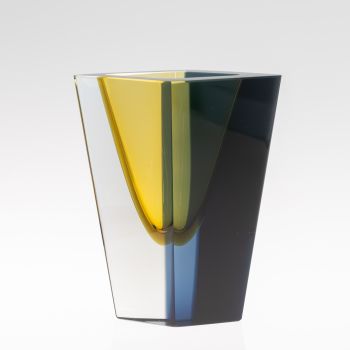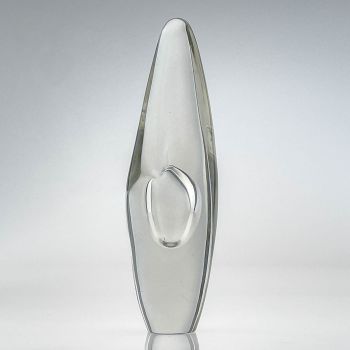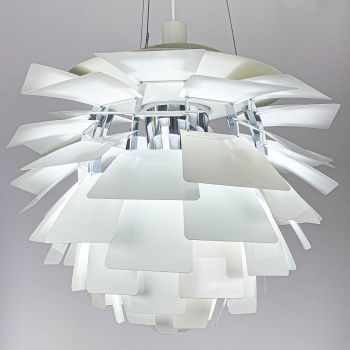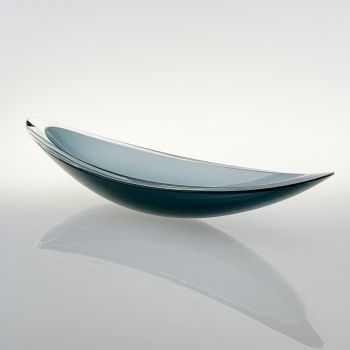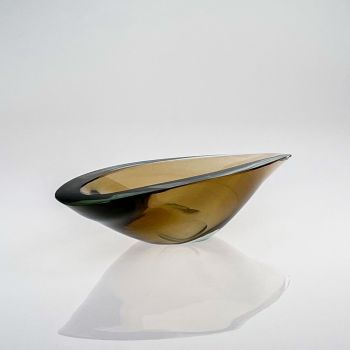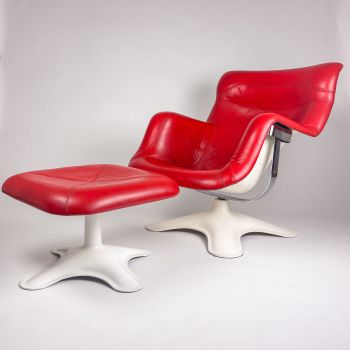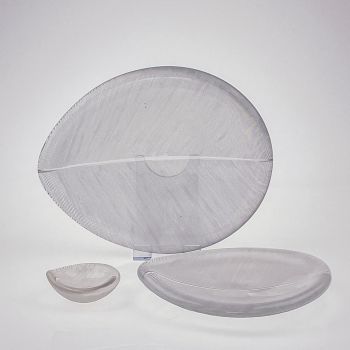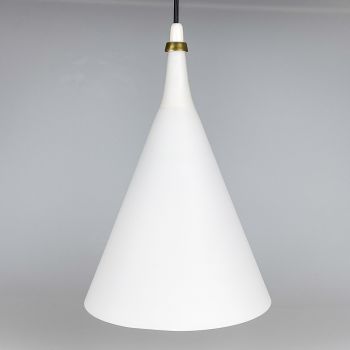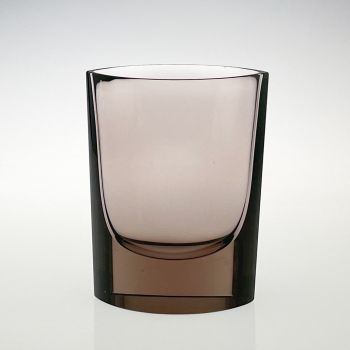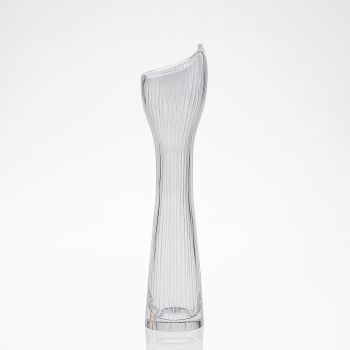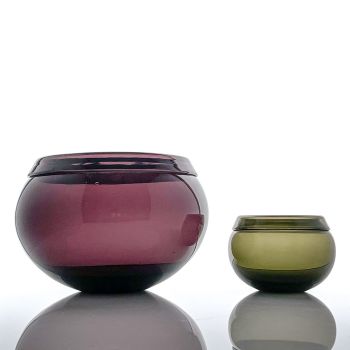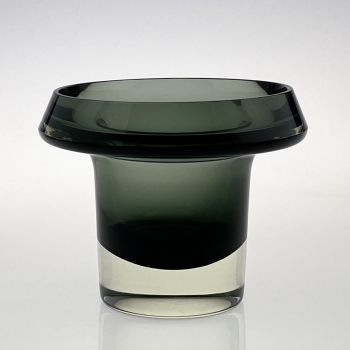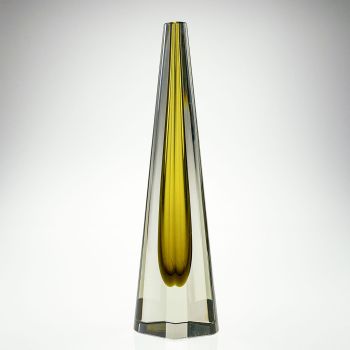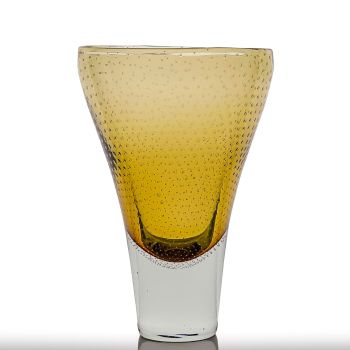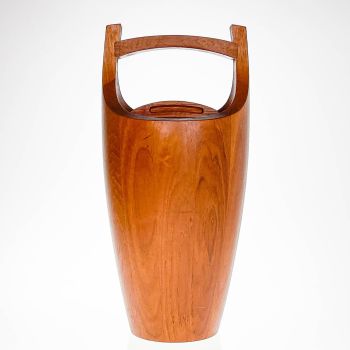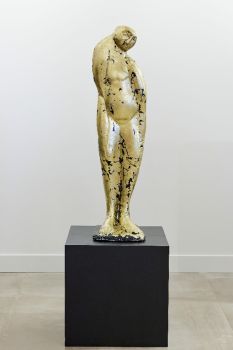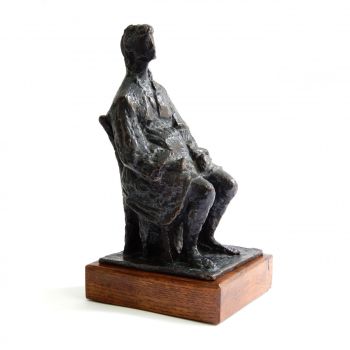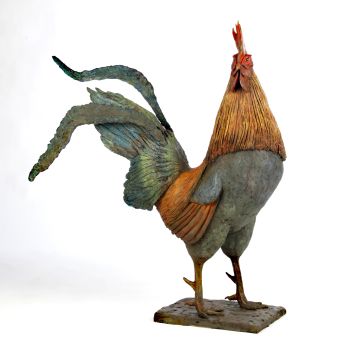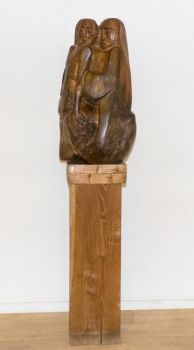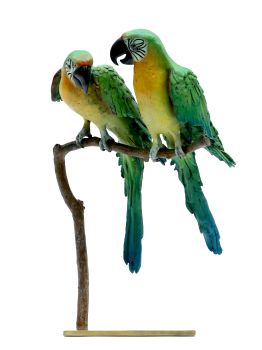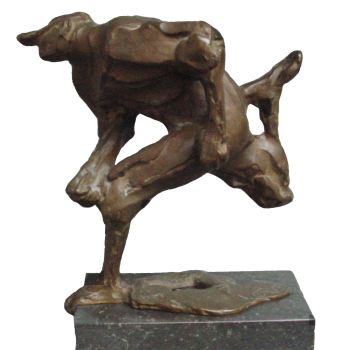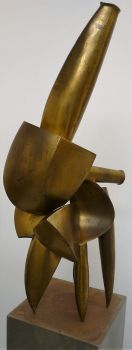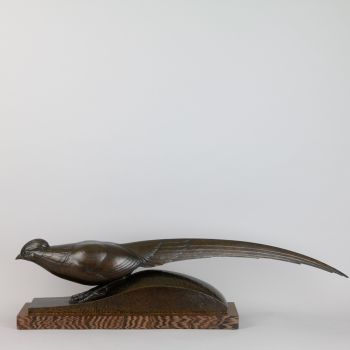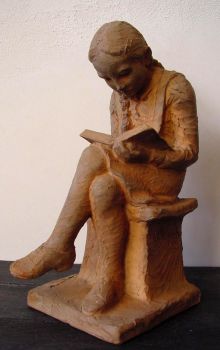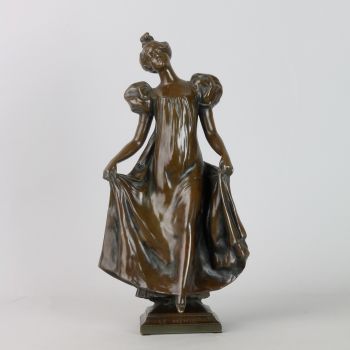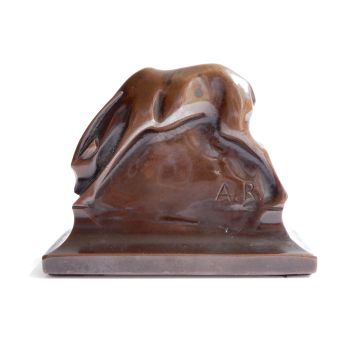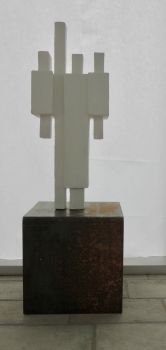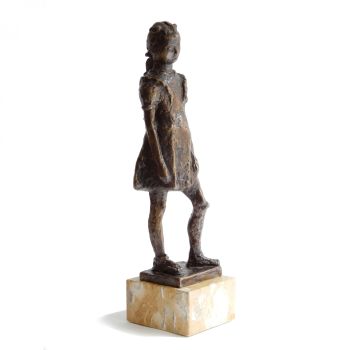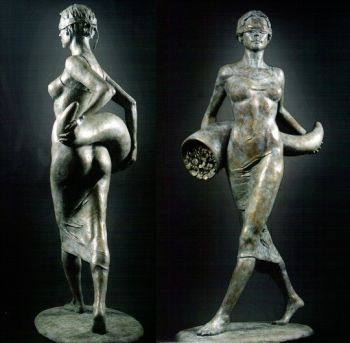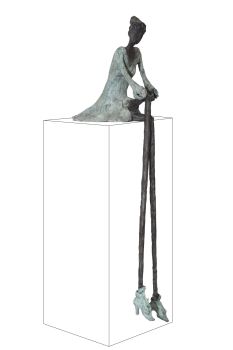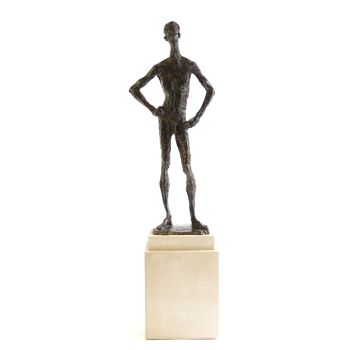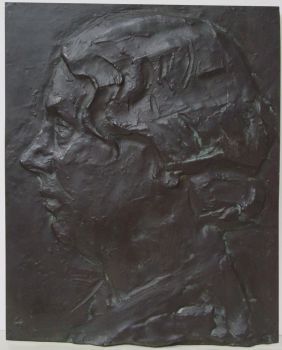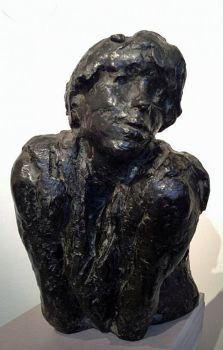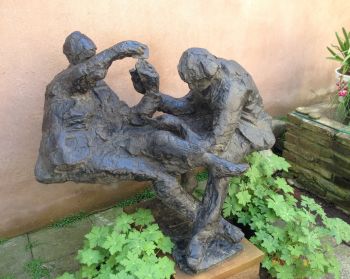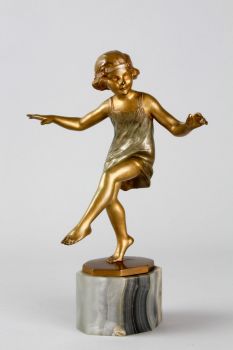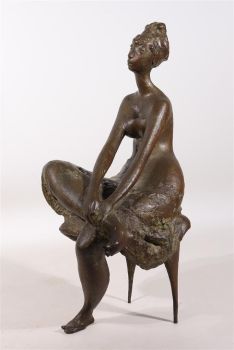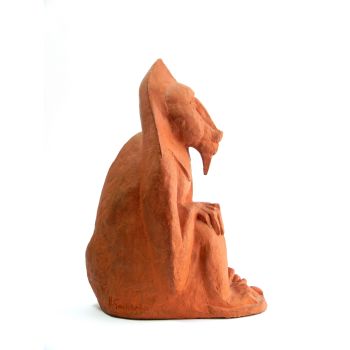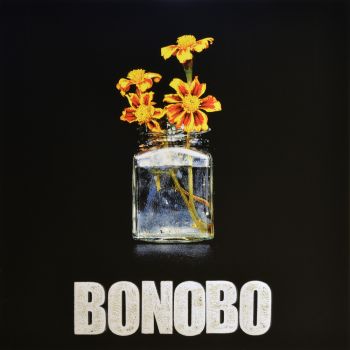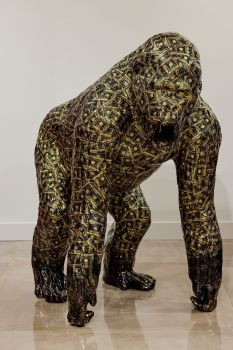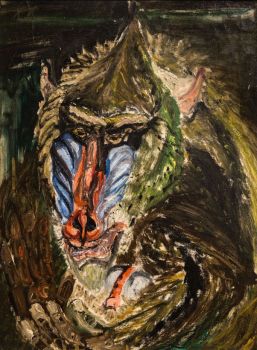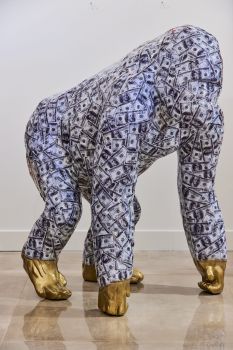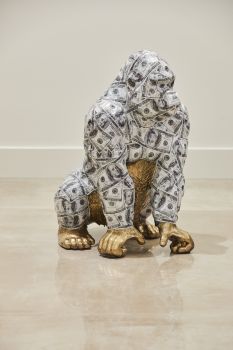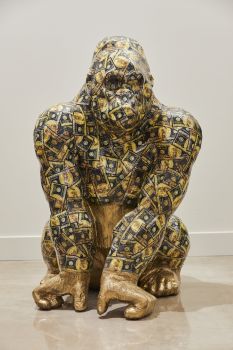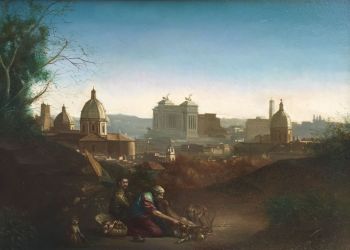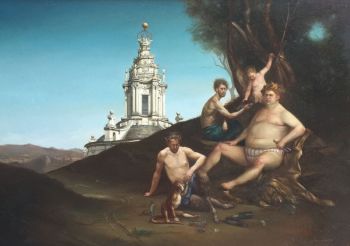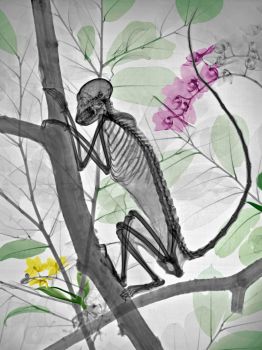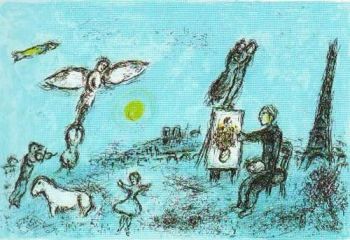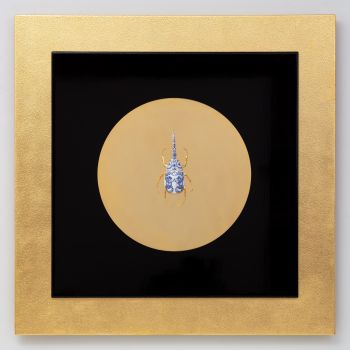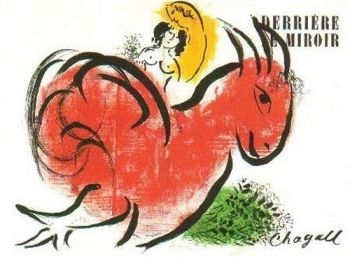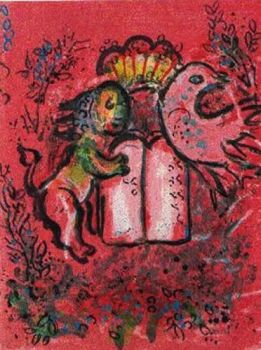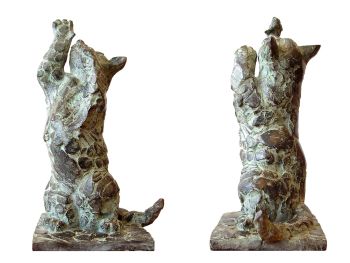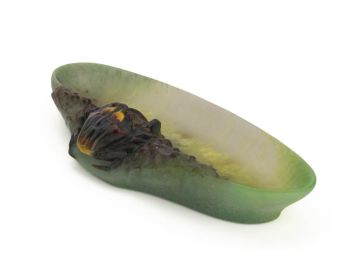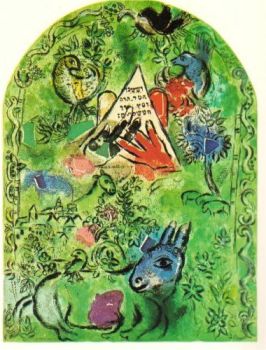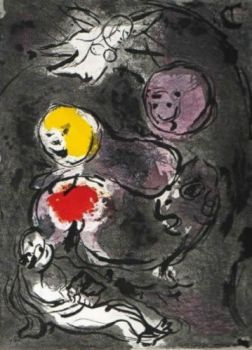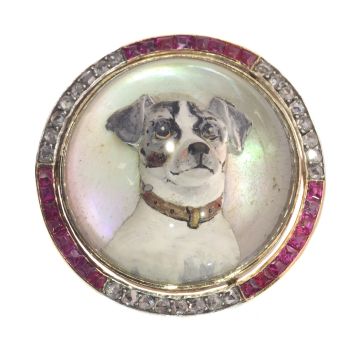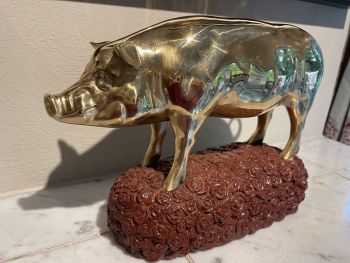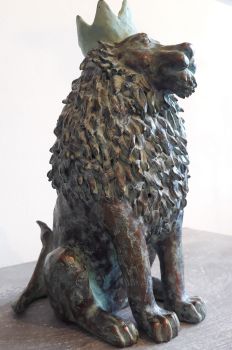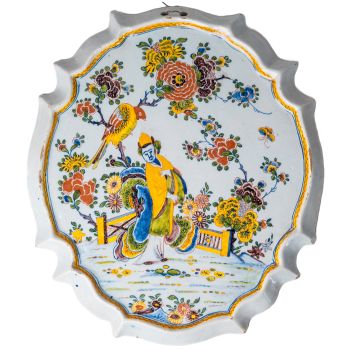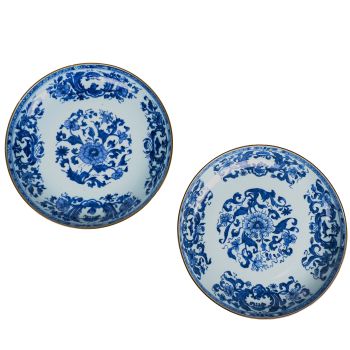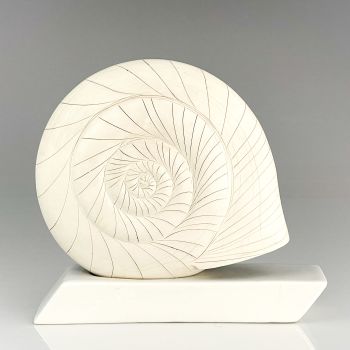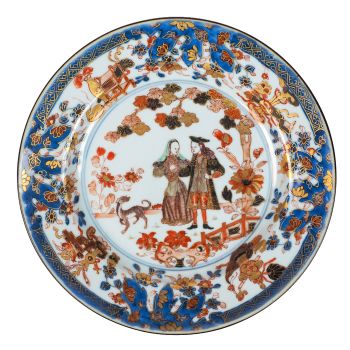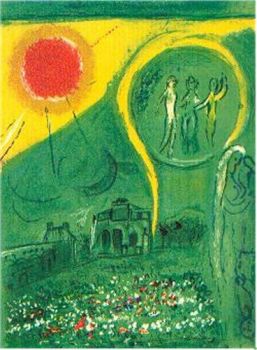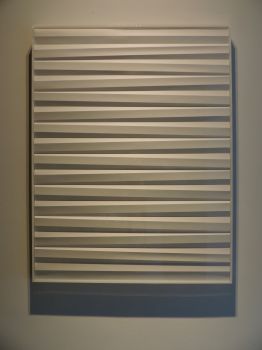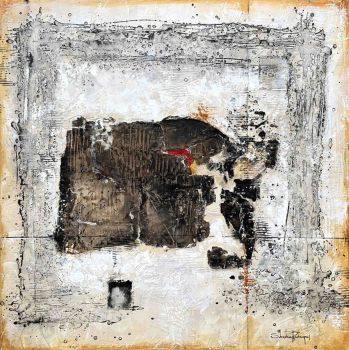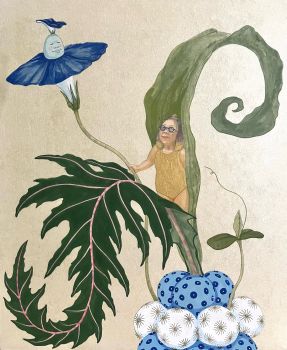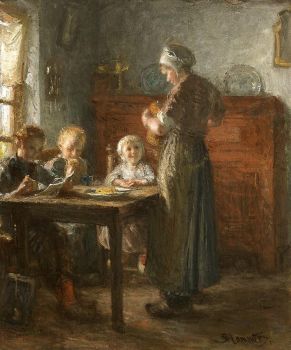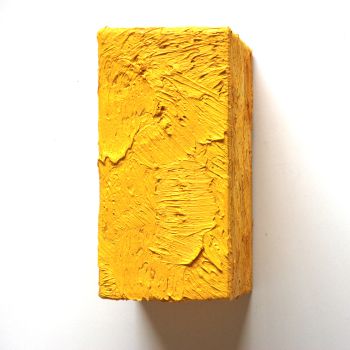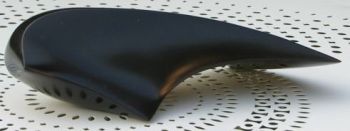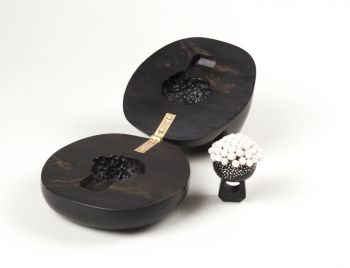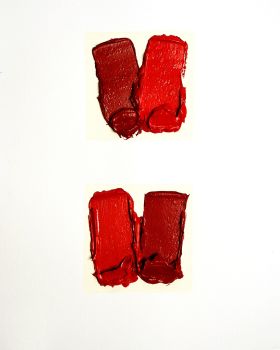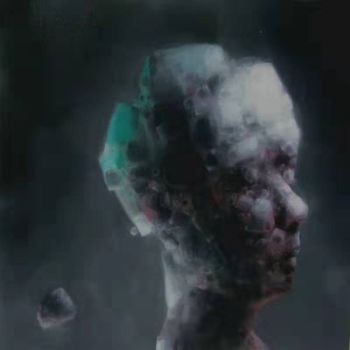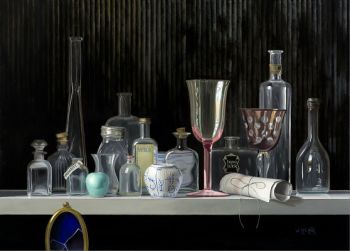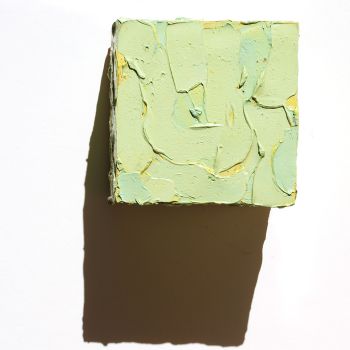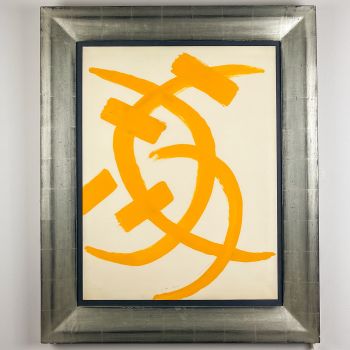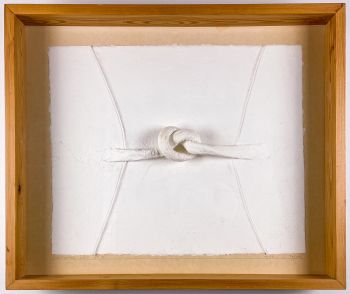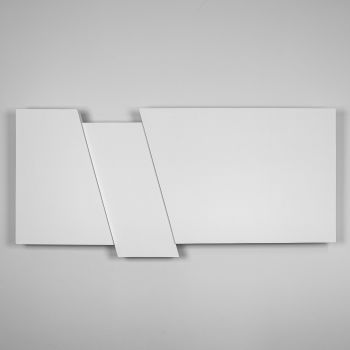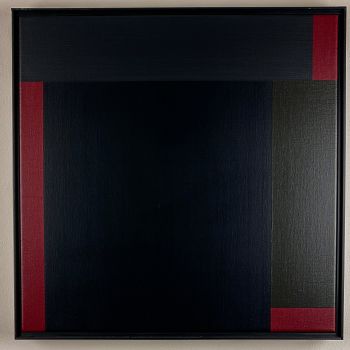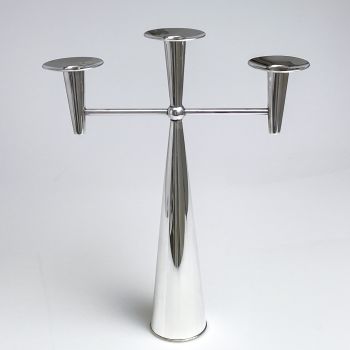A glazed stoneware sculpture of a Monkey – Rörstrand Sweden circa 1955 1951 - 1960
Gunnar Nylund
PierreglaçageBoisGrèsPeindre
20 ⨯ 20 ⨯ 10 cm
ConditionVery good
€ 1.450
Van Kerkhoff Art
- Sur l'oeuvre d'artA stoneware sculpture of a thinking Monkey, finished in cream-white, sand and dark brown glazes on a lacquered ashwood base.
Gunnar Nylund was particular know for his animal figures with beautiful experimental glazes. The larger examples and sculptures of exotic animals, are especially sought after.
This sculpture was designed by Gunnar Nylund and executed by the Swedish ceramics factory Rörstrand in the 1950’s.
It is fully signed underneath: Rörstrand – R with 3 crowns – Sweden – GN (Gunnar Nylund).
About Gunnar Nylund
Gunnar Nylund (1904-1997) was a Swedish artist, ceramist and sculptor most known for his work for the Swedish ceramic manufacturer Rörstrand.
He was born in Paris to a Danish mother and a Swedish-Finnish father, both artists. His mother Fernanda Jacobsen-Nylund was a ceramist and his father Felix Nylund a sculptor. He grew up in Helsinki and moved to Copenhagen in 1917. In Denmark he received his education as an architect at the Royal Danish Academy of Fine Arts in the 1920’s. In 1929 together with Nathalie Krebs he started a ceramics workshop Nylund og Krebs that later was renamed to Saxbo.
In 1931 Nylund started working for the ceramics manufacturer Rörstrand in Lidköping in Sweden, becoming Rörstrand’s artistic director in 1937 and he continued to work there in this position until 1956. In this period Nylund became well known for his innovative feldspar glazes – popularized by renowned ceramists Berndt Friberg and Carl-Harry Stålhane – and his glazed stoneware animal sculptures.
After his time at Rörstrand he became artistic director at the Strömbergshyttans glassworks in Hovmantorp, Sweden and in the early 1960’s worked for the Nymölle Keramiska Fabrik in Lyngby, Denmark where he started producing stoneware.
Nylund crafted some 30 reliefs and sculptures commissioned for public spaces and many of his sculptures are part of museal collections ie: The National Museum in Stockholm, the Sèvres museum in Paris, the Röhsska museet in Gothenburg, the Ateneum museum in Helsinki and the Danish Museum of Art & Design.
Extra informatie Doe een bod
Marked
Marked underneath the base: Rörstrand – R (Rörstrand) with 3 crowns – Sweden – GN (Gunnar Nylund)
Execution
Rörstrand, Sweden 1951-1960
Condition
This sculpture is in very good condition. No cracks or chips.
Lacquered ashwood base included.
Literature
Mel Bryans – The Design Encyclopedia p. 535
Dimensions
Height 20 cm (including base)
Width 20 cm
Depth 10 cm
Weight 1079 grams - Sur l'artiste
Gunnar Nylund (1904-1997) était un artiste, designer et sculpteur d'origine danoise et finlandaise qui a principalement travaillé en Suède. Véritable pionnier des arts décoratifs du milieu du siècle, il est considéré comme l'un des céramistes les plus importants du XXe siècle et est surtout connu pour son travail avec le très célèbre céramiste suédois Rörstrand.
Nylund a été exposé à diverses formes d'art dès son plus jeune âge grâce à ses parents artistes. Cette exposition a grandement contribué à ses capacités multidisciplinaires et a clairement bien servi sa carrière variée dans les arts décoratifs. Bien qu'il ait d'abord étudié l'architecture à Copenhague, il a abandonné ces études pour accepter un poste permanent à la manufacture de porcelaine Bing & Gröndahl. C'est là qu'il rencontre la céramiste danoise Nathalie Krebs, avec qui il développera sa propre gamme innovante et, plus tard, l'atelier "Saxbo" en 1930.
Son expérimentation de nouvelles formes impressionne grandement Rörstrand, qui le nomme directeur artistique de 1932 à 1955. Après cette période, Nylund prend le rôle de directeur artistique de la verrerie Strömbergshyttan tout en travaillant en freelance en tant que designer céramiste. Bien que l'œuvre de Nylund en verre soit bien moindre que celle en céramique, il est clair qu'il excellait également dans le médium, créant des récipients élégants et intemporels dans de belles couleurs.
Comme beaucoup de ses contemporains bien connus, le travail de Nylund se définit par une exploration des formes et des techniques modernes en plus de ses glacis mats lisses et de ses belles couleurs tamisées. Ses vases en grès révolutionnaires en sont un excellent exemple, où il a utilisé la chamotte, une matière argileuse brute, mélangée à de la pâte à modeler. Ce matériau garantissait que les objets ne s'effondraient pas pendant leur fabrication, permettant des formes plus fines et plus délicates.
Au-delà du grès et de la verrerie, Nylund est également un sculpteur accompli qui a été chargé de créer de nombreuses œuvres pour les espaces publics, les théâtres, les bibliothèques et les banques. Son travail est conservé dans de nombreux musées suédois, dont le Musée national de Stockholm, ainsi que dans divers autres tels que le Musée danois d'art et de design, le Musée d'art Ateneum à Helsinki et le Musée national de la céramique de Sèvres à Paris.
Êtes-vous intéressé par l'achat de cette oeuvre?
Artwork details
Related artworks
- 1 - 4 / 4
- 1 - 4 / 24
Klaas II Mobach
Hanna Mobach, daughter of the sculptor Klaas Mobach, reading1950 - 1970
Prix sur demandeKunsthandel Pygmalion
Lambertus Zijl
Portrait of Juliana, queen of the Netherlands (1948-1990)1900 - 1950
Prix sur demandeKunsthandel Pygmalion
1 - 4 / 24Samuel Dejong
Anatomia Blue Heritage, Atlas Closed2017 - 2019
Prix sur demandeVilla del Arte Galleries
Amalric Walter
Amalric Walter & Henri Bergé – Crabe plumier1920 - 1929
Prix sur demandeAntiques Emporium
1 - 4 / 24- 1 - 4 / 24
- 1 - 4 / 12








